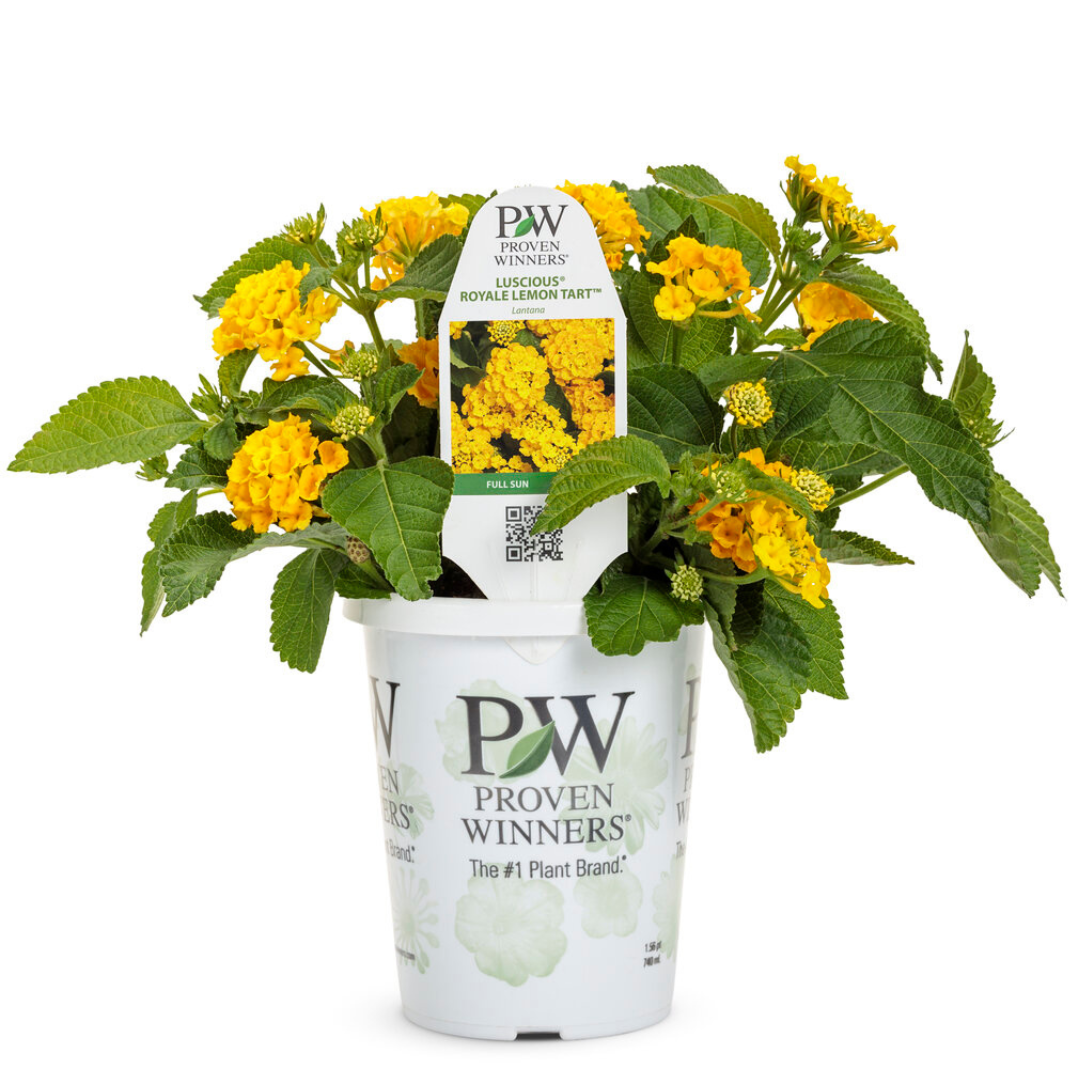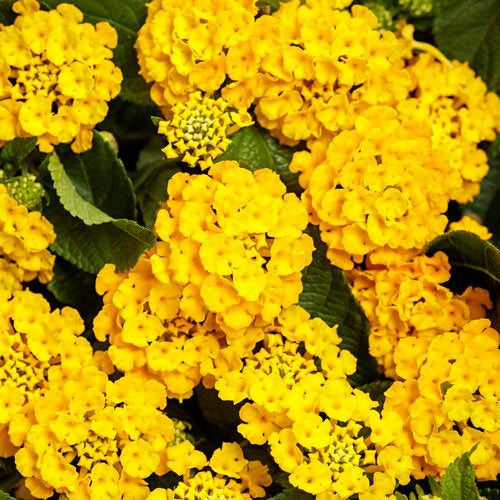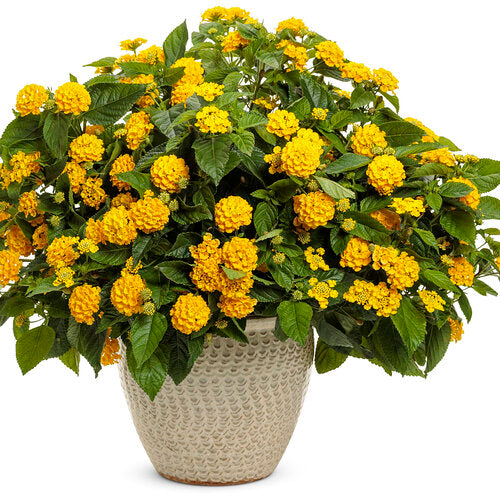The Luscious series of Lantana are colorful plants with low to no seed set. They are tough, durable plants that will happily bloom like crazy when the heat does its worst and will tolerate dry conditions. One of the best things about them though is pollinators flock to them. Butterflies, bees and hummingbirds will come calling when you use these colorful plants in your garden.
Proven Winners
Proven Winners Luscious® Royale Lemon Tart™
Proven Winners Luscious® Royale Lemon Tart™
15% OFF ORDERS $100+ & FREE SHIPPING ON ORDERS OVER $160! SALE ENDS TODAY!
"Please ensure that you select the correct shipping week based on your zone. If you're unsure, kindly refer to our Zoning Guide Page for assistance."
Low stock: 23 left
Pre-Orders Ship in Spring of 2025 on Your Chosen Ship Week
Couldn't load pickup availability
FEATURES
CHARACTERISTICS
PLANT NEEDS
The optimum amount of sun or shade each plant needs to thrive: Full Sun (6+ hours), Part Sun (4-6 hours), Full Shade (up to 4 hours).
Great in landscapes and containers.
If you are looking for a tough plant it's hard to beat lantana. Lantana are heat tolerant, use little to no supplemental water in the landscape, will tolerate less than ideal soils and usually don't need to be deadheaded. If you are looking for a plant that will thrive on neglect, lantana is the champ. Lantana come in many shapes, sizes and habits. Check size and habit information for the specific variety you are choosing to make sure it fits your needs. Lantana can be trimmed back at anytime to shape or to promote increased branching.
In many parts of the US and Canada lantana function as an annual. In reality they are a tender perennial, in warm winter climates they become flowering shrubs.
If you live in an area where Lantana is perennial they are essentially trouble free, they can be pruned at any time of year and usually benefit with a harder shape-up pruning in early spring after last frost date. Midsummer fertilization can help overcome any slow down in growth during the dog days of summer and help bring even more flowers.
According to the Humane Society of America Lantana leaves can be toxic to pets. This means that the plants are generally identified as having the capability for producing a toxic reaction.
An application of fertilizer or compost on garden beds and regular fertilization of plants in pots will help ensure the best possible performance.
Share






